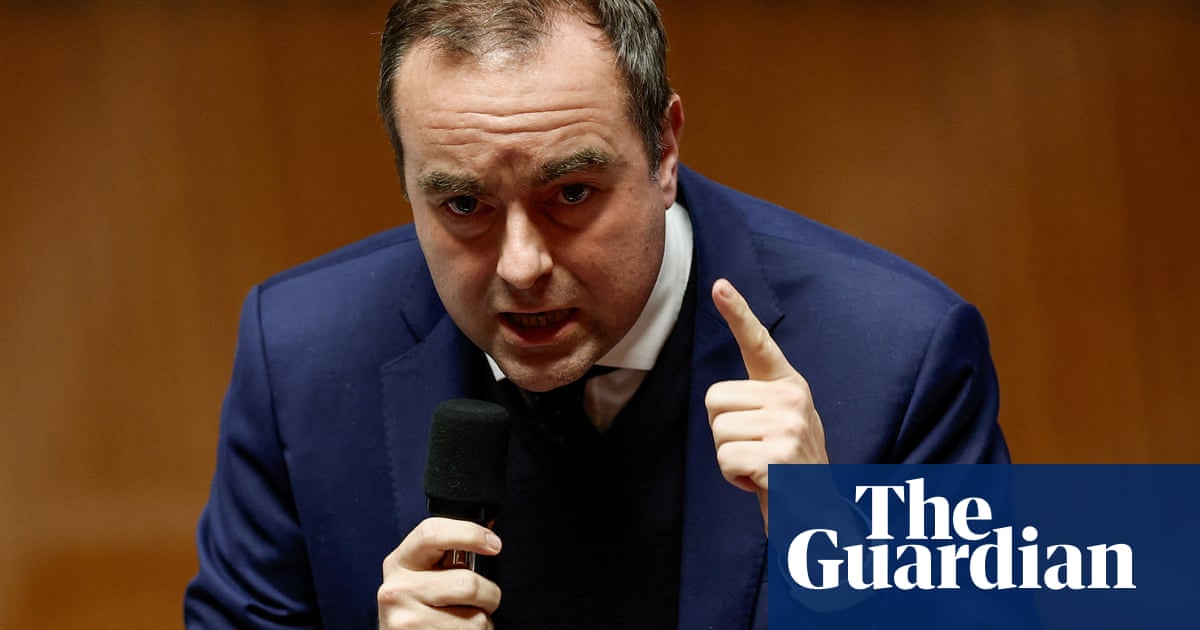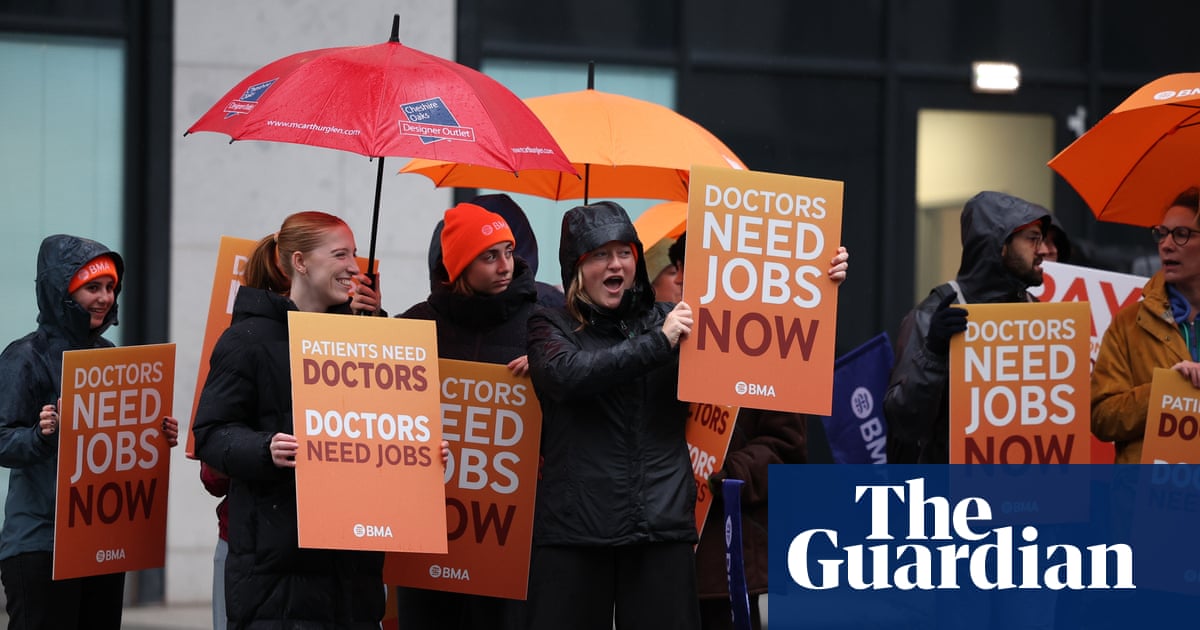Everybody has a horror story about NHS waiting lists. If it isn’t you, then it’s probably your neighbour, your friend, your elderly parent; trapped in an anxious, miserable limbo for months longer than they should have been, getting passed from pillar to post. The only thing we don’t all know about waiting lists, it turns out, is that actually they’re coming down.
Barely a quarter of Britons knew waiting lists had fallen in Labour’s first year in power, according to recent polling for the Health Foundation thinktank in September: more than a third thought they had just kept going up, presumably because that’s what we have become gloomily resigned to. Since waiting lists are one of those emotional yardsticks by which people judge whether the country is falling apart or not, you would think the government might like to mention this, and indeed this week it planned to. But then someone close to Keir Starmer chose to accuse the health secretary of plotting a coup two days before a planned speech on NHS reform, accidentally ensuring that Wes Streeting’s pre-booked stint on breakfast telly was mostly spent debating whether the prime minister is toast or not. Streeting emerged a picture of injured innocence, while reminding everyone how much better he is at this stuff than the boss. Well done, everyone, and now back to the bit that actually affects anyone hoping to see a GP this side of Christmas.
This week, Streeting finally gave the green light for axing about 18,000 backroom NHS jobs, in a reorganisation that is ultimately supposed to save £1bn a year to be spent on frontline care, but will cost at least that to implement upfront. Nobody wants to hear that they may be losing their job just before Christmas, and the last thing a Labour government wants is to be the one responsible, yet in some respects that was the easy bit.
For Streeting has embarked on a high-stakes and surprisingly under-discussed reform of the NHS that, if it works, could become the model for rebuilding a crumbling public realm without intolerably high taxes; but if it doesn’t could be the last nail in Labour’s coffin and potentially in the NHS, to boot. And he’s trying to do it in the teeth of a doctors’ strike, endlessly delayed social care reforms that mean hospitals are still full of people who shouldn’t really be there, and what may be an ominously busy winter. Lives depend on whether he succeeds, but that’s not all in an era where people seem increasingly convinced that everything is too broken for conventional politics to fix.
After finding some way of making people feel better off, cutting waiting lists as promised in its manifesto is probably the single most important thing this government could do now, both for the country and for its own survival. It mattered enough to Rachel Reeves that she used her first tax-raising budget partly to fund 2m extra NHS appointments, and when waiting lists fell this May for the first time in 17 years, it looked as though the medicine might be working. Though by August they were creeping up again, after a summer heatwave and another strike, they fell once more in September: 61.8% of patients currently get treated within 18 weeks of referral and NHS executives are confident that could be 65% by next March, on track for 92% – the target set and met by the Blair government, but consistently missed for a decade – by 2029.
Yet progress remains fragile, which helps explain why Streeting’s frustration boiled over on Thursday, as resident doctors who got a 28.9% pay rise last year prepared to walk out once more. The BMA, he suggested, is only too quick to lobby against doctors paying higher taxes, while demanding the state pay them more out of other people’s taxes. Yet going to war with doctors is another big gamble, because this plan won’t work without them.
The politics of Streeting’s plan is clear: slash bureaucrats, who aren’t popular, and put the money into frontline care, which is. Merging NHS England back into the Department of Health and Social Care and cutting regional commissioning boards will cut headcount, but will also lead to a devolution of power, with good hospital trusts in theory freed from central control. It has risks but it is a model likely to be echoed across government, with other cabinet ministers exploring the use of devolution, digital tools and AI to deliver services differently – which will mean some painful decisions about the human jobs displaced.
after newsletter promotion
Because those NHS staff now anxiously refreshing their CVs weren’t just sitting around looking busy. They will be patient safety officers and infection control specialists, middle managers and unglamorous admin staff with families and mortgages, who worked right through the worst of the pandemic. If it turns out their roles weren’t the best use of taxpayers’ money, that’s not their fault – they didn’t build the byzantine structure for which they worked – and like all big changes, this one may be demoralising and disruptive.
If it works, perhaps the pain will be forgiven. If it means fewer people dying of preventable causes before they ever reach a surgeon, then these reforms will have been life-changing for many families. And if they prove that governments can still make a difference, that paying taxes is worth it, and that life can be better than this, then they will also have done their bit to fight rising political nihilism. Since long waiting lists have made it all too easy to convince some voters that immigrants are the reason they can’t see a GP, rather than the reason they even have a GP, tackling that grievance might even create space for a more reasoned conversation about the skills this country needs.
Can Streeting pull it off? The jury is still out: on one hand, the last Labour government did it, and the increase in appointments needed isn’t wildly out of kilter with the ones achieved during the Tory years. Recent modelling from the Health Foundation reckoned Streeting might fall only very slightly short. But making it work still requires going further and faster than the Blair government on a tighter budget, while pushing through a complex reorganisation of an institution that has had more than enough of them, battling mutinous doctors and fighting his own backbenchers over some of the 10-year plan’s more controversial ideas around the commercial use of health data.
If he can do all that and still come up cheerfully cracking Traitors jokes at breakfast, then Streeting probably deserves a tilt at Starmer’s job. If he can’t, then the job may not be anyone’s for long.
-
Gaby Hinsliff is a Guardian columnist

 2 months ago
59
2 months ago
59

















































